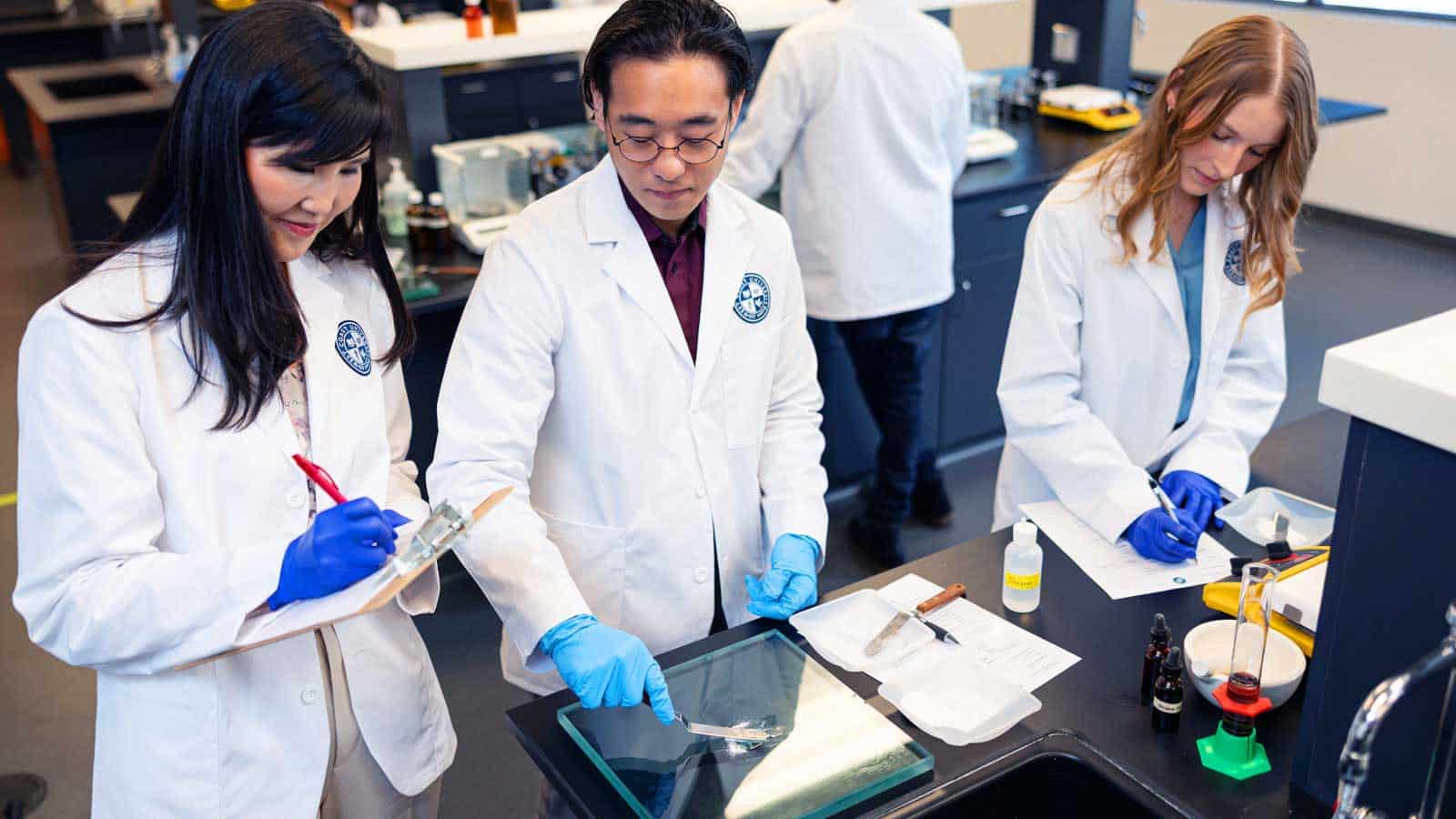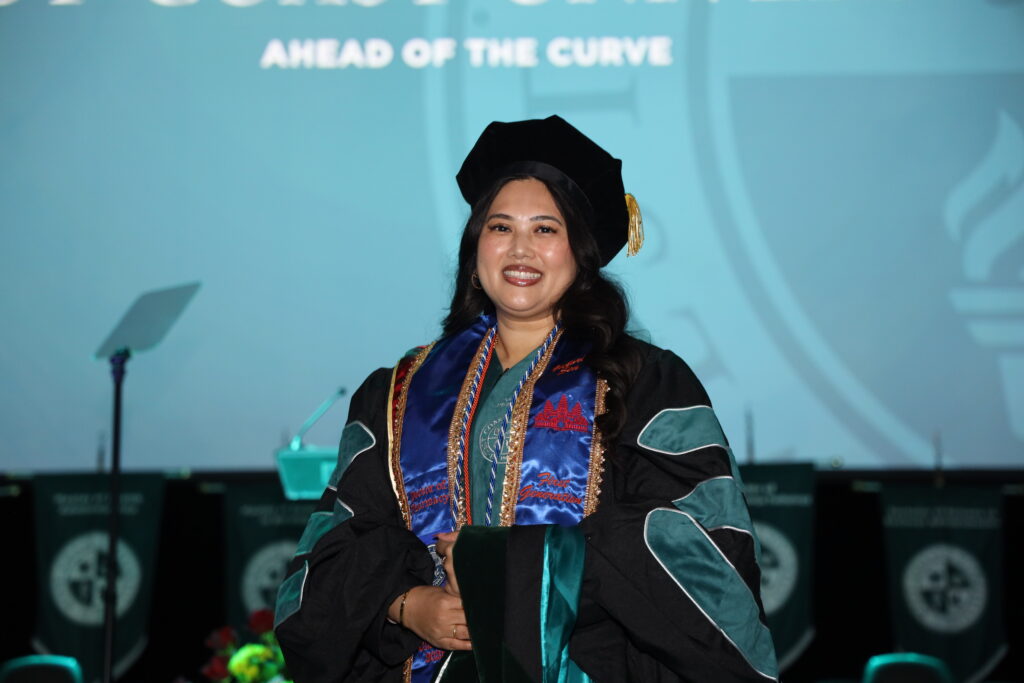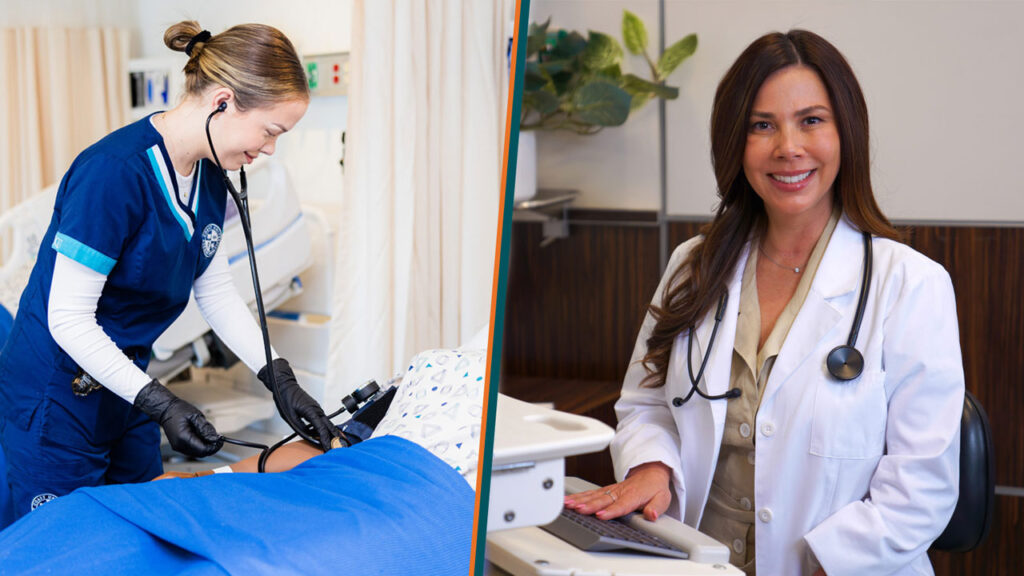Team-Based Learning (TBL) is:
A special form of collaborative learning using a specific sequence of individual work, group work and immediate feedback to create a motivational framework in which students increasingly hold each other accountable for coming to class prepared and contributing to discussion. -Michael Sweet
This active, collaborative learning strategy improves student attendance, engagement, progression, critical thinking, and performance. Students come to class ready to apply conceptual knowledge to significant problems and activities that promote collaborative analysis, communication, teamwork, and immediate feedback. Since its development, TBL has become a staple in higher education — especially in the field of healthcare.
Team-Based Learning in the Classroom
Unlike traditional lecture-based instruction, the majority of TBL class time centers on problem-solving, collaborative analysis, and discussions within and between teams explaining their reasoning and evidence. The instructor moves from a sage-on-the-stage role to a guide-on-the-side role, facilitating students to ask the right questions, defend their thinking, and elevate their analysis, closer to what an expert sees in a problem.
To help students come ready for these applications in class, the instructor prepares focused pre-class readings, videos, or short assignments to help students quickly develop a foundation for the topics planned for class. Students prepare individually with these materials and start class with a short individual readiness assurance test (IRAT) and then take it again in teams (TRAT), followed by class discussion and clarification.
What Does TBL Do for Students?
TBL offers feedback on preparation and helps to close gaps in foundational knowledge prior to engaging in higher level applications. To manage team dynamics, students often create team contracts to set shared expectations and periodically offer feedback to team members through a peer evaluation process.
TBL shifts the classroom focus from passively understanding information to dynamically engaging with one another to solve deeper problems based on what experts see in practice. Through this preparation, readiness assurance, significant applications, collaboration, facilitated discussion, and regular feedback, students elevate their learning and performance for the subject matter and become ready for lifelong learning.
Students also grow key professionalization skills that assist them in their future careers, including:
- Teamwork
- Leadership
- Communication
- Critical Thinking
- Problem-Solving
- Time Management
This approach is especially helpful for anyone starting out in fields where teamwork is key to making informed group decisions and meeting shared goals. It also shows students how diverse teams and differing viewpoints are a strength when exploring and solving complex problems, teaching us to take time to listen and explain our understanding to others.
The History of Team-Based Learning
Founded by the original creators of TBL, the Team-Based Learning Collaborative (TBLC) is an organization of educators from around the world who encourage and support the use of team-based learning in all levels of education.
The concept of team-based learning emerged in 1979 when Dr. Larry Michaelsen, faced with the challenge of teaching a class that had tripled in size to 120 students, developed a structured, team-focused approach to learning. To ensure students were prepared and engaged, Michaelsen developed what is now known as the “4S” framework, a foundational aspect of TBL that guides the design of each team activity.
The “4S” framework is a test of an application’s design, ensuring that each activity had:
- A Significant Problem that the learners will want to engage and also important to the outcomes for the course.
- The Same Problem for all teams to allow for shared analysis and discussion.
- A Specific Choice so students compare options and then choose and defend the best answer as a team, elevating analysis skills.
- A Simultaneous Report so that all teams share their answers all at once, avoiding answer drift, and inviting exploration and comparison of team answers across the class.
This approach quickly gained traction as a method to improve student engagement, critical thinking, and teamwork skills, initially in Michaelsen’s own classes and eventually across many disciplines and industries and now around the world.
Today, TBL has expanded well beyond its original setting and is commonly used in fields like business, agriculture, and healthcare, where collaboration and practical application are essential. It’s also heavily implemented across universities and professional programs worldwide to help students apply their learning to real-world scenarios.
Why is Team-Based Learning Important in Healthcare?
Founded by the original creators of TBL, the Team-Based Learning Collaborative (TBLC) is an organization of educators from around the world who encourage and support the use of team-based learning in all levels of education.
The concept of team-based learning emerged in 1979 when Dr. Larry Michaelsen, faced with the challenge of teaching a class that had tripled in size to 120 students, developed a structured, team-focused approach to learning. To ensure students were prepared and engaged, Michaelsen developed what is now known as the “4S” framework, a foundational aspect of TBL that guides the design of each team activity.
The “4S” framework is a test of an application’s design, ensuring that each activity had:
- A Significant Problem that the learners will want to engage and also important to the outcomes for the course.
- The Same Problem for all teams to allow for shared analysis and discussion.
- A Specific Choice so students compare options and then choose and defend the best answer as a team, elevating analysis skills.
- A Simultaneous Report so that all teams share their answers all at once, avoiding answer drift, and inviting exploration and comparison of team answers across the class.
This approach quickly gained traction as a method to improve student engagement, critical thinking, and teamwork skills, initially in Michaelsen’s own classes and eventually across many disciplines and industries and now around the world.
Today, TBL has expanded well beyond its original setting and is commonly used in fields like business, agriculture, and healthcare, where collaboration and practical application are essential. It’s also heavily implemented across universities and professional programs worldwide to help students apply their learning to real-world scenarios.
Why is Team-Based Learning Important in Healthcare?
It’s no surprise that in the field of healthcare, teamwork, effective communication, and problem-solving are essential skills that directly influence patient outcomes and quality care.
TBL offers a highly organized way for students to practice these skills in real-life clinical settings, analyzing patient cases to make informed, evidence-based decisions as a team. Through these exercises, students build trust with their peers, learn to communicate with clarity, and take on shared responsibility for learning.
Rather than simply relying on memorization and regurgitating concepts, students are given case studies and apply their knowledge as a group to decide on the best treatment plans.
Join an Innovative PharmD Program at WCU
Looking to join a program that gives you the hands-on, real-world learning you need to succeed in the pharmaceutical field? WCU’s hybrid PharmD program integrates TBL and other active learning strategies to help prepare you for a collaborative, practice-ready essential for the multidisciplinary environment of healthcare — all in as little as 33 months!
Plus, you don’t have to sacrifice your schedule. As one of the first pharmacy schools in the nation to launch an accelerated hybrid format, the program requires only one week on campus per term (every three months) at our Center for Graduate Studies in Los Angeles.
Watch this video of the PharmD program’s second annual open house and schedule an info session to learn more about how the program can help you advance your pharmacy career with confidence.
WCU provides career guidance and assistance but cannot guarantee employment. The views and opinions expressed are those of the individuals and do not necessarily reflect the beliefs or position of the school or of any instructor or student.



